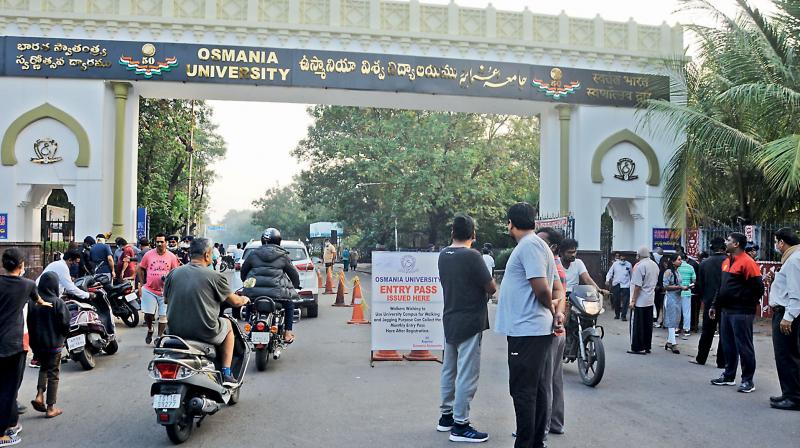OU PhD aspirants decry tougher admission criteria

Hyderabad: Aspirants for a PhD at Osmania University (OU) have objected to the new, tougher admissions criteria and have asked the university to increase the number of seats. The university, on the other hand, claims to be complying with the most recent UGC guidelines and does not have enough teachers to increase seats.
After a four-year wait, the university issued a notification for PhD admissions on August 1, 2022. Admission will be granted after passing an entrance exam and a personal interview. Previously, candidates only needed to achieve qualifying marks in the entrance exam; however, selection would now be based on merit, with no minimum marks required to advance to the interview round.
Aspirants opposing the move have formed a joint action committee (JAC) comprising members from various student groups. Korra Sharath Naik, a PhD aspirant and JAC member, stated that the qualifying marks for OC or general category were 35 out of 100, 30 for BC, and 25 for SC/ST candidates. Now, the exam is for 70 marks, with the qualifying marks of 35 for the general category and 32 for the SC/ST candidates.
"In any case, non-general category students have a difficult time getting into PhD programmes. How will they get fellowship if it is made even tougher for them, and what role will they play in nation building? This is an anti-SC, ST, and BC move," Naik said.
According to Prof. Gali Vinod Kumar, dean, faculty of law, OU, there are no specified qualifying marks for SC/ST applicants under the UGC norms, and other central universities are following suit. He questioned why OU had mandated it in the first place. The JAC also wants the university to increase the number of PhD seats.
The University Grants Commission (UGC) has revised the rules for admission to PhD programmes to include an admission test in addition to qualification through the existing National Eligibility Test (NET). According to the new regulations, 60% of the seats must be filled through UGC-NET and JRF, with the remaining 40 per cent filled through university entrance exams.
According to OU registrar Prof. P. Laxminarayana, written tests were previously conducted only for qualification under UGC rules, but this was changed by an amendment in 2018. "We are adhering to UGC guidelines. But the aspirants argue that because they graduated from PG courses in 2016, we should follow the old rules, which we cannot," he asserted.
He also stated that in order to increase the number of seats, more guides for students are required, as the state government does not regularly recruit teachers. The UGC has set a limit of eight scholars per faculty member.
“Aspirants want us to increase the number of scholars under a guide, but doing so will have an impact on the university’s rankings. Students can approach the court if they think we are doing something wrong instead of terrorising the administration. We told them to submit their grievances in writing, and we will do everything we can to resolve them, but we will not deviate from UGC rules,” the registrar said.

